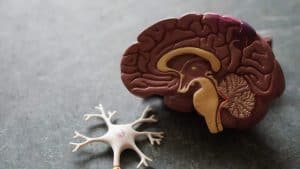
Broken String Biosciences and the Francis Crick Institute collaborate on ALS research
James Spargo | May 7, 2024 | News story | Research and Development | Broken String Biosciences, Francis Crick Institute, Neurology, amyotrophic lateral sclerosis, genomics
Genomics company Broken String Biosciences and biomedical discovery institute Francis Crick have announced a research collaboration, focusing on amyotrophic lateral sclerosis (ALS).
The collaboration will leverage Broken String’s current DNA break-mapping platform, INDUCE-seq – which already has established capabilities in gene editing – to investigate the impact of genomic instability in the development of ALS. While efforts have been made to better understand the genes and biological markers associated with the disease, leading to current treatments focusing on symptom management and slowing disease progression, this partnership aims to discover factors leading to the development of ALS.
Dr Simon Boulton, principal group leader, the Boulton Lab (DSB Repair Metabolism) at the Francis Crick Institute, said:“Our research is focused on exploring how cells repair damage to their DNA, and how failures in this process lead to disease. Following exploratory work with Professor Reed, we were keen to collaborate with Broken String. We are excited to leverage the INDUCE-seq platform’s unique capabilities in directly measuring and quantifying DNA double-strand breaks, and applying this to deepen our understanding of diseases that have genomic instability as a contributing factor, such as ALS.”
Felix Dobbs PhD, CEO, Broken String Biosciences, commented:“This collaboration with the Crick Institute is validation of our differentiated approach to DNA break-mapping; enabling our team to support world-leading research with insights provided through our INDUCE-seq platform. It demonstrates a fantastic opportunity to apply our expertise across other key research areas to support the advancement of human health. There is an unmet clinical need for effective ALS treatments, as well as strategies for earlier diagnosis that can significantly improve patient outcomes. We look forward to working closely with Dr Boulton and Professor Patani’s groups to support this critical research area and continue building out our application focuses.”
James Spargo
Related Content

FDA decision on Neurizon’s ALS therapy delayed until October
Neurizon Therapeutics has announced that the US Food and Drug Administration (FDA) will delay its …

PLL Therapeutics to present ALS research strategy at Bioshares Biotech Summit
French biotech, PLL Therapeutics, will present its approach to early detection and treatment of Amyotrophic …

Neurizon confirms positive results for prospective ALS treatment
Neurizon Therapeutics has announced new preclinical data confirming that NUZ-001 and its active metabolite, NUZ-001 …






